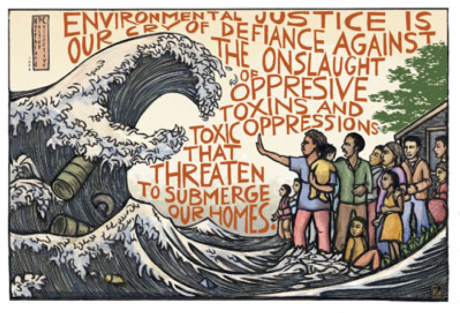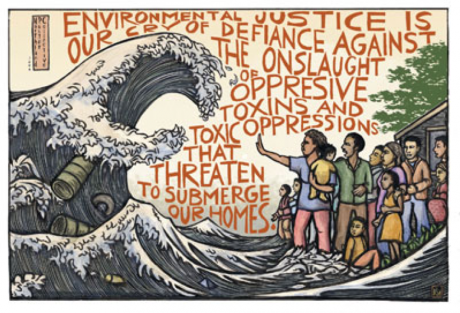 In this blog series I’ll be exploring environmental inequality, typically with regard to race issues, in North Carolina through the social science lenses of sociology and geography. Although the environment and social prejudice aren’t two things that typically are considered as a unit, there exist countless overlaps and intersections of the two. From Hurricane Katrina and Cancer Alley to illegally growing landfills outside of Chapel Hill, environmental racism impacts communities around the country.
In this blog series I’ll be exploring environmental inequality, typically with regard to race issues, in North Carolina through the social science lenses of sociology and geography. Although the environment and social prejudice aren’t two things that typically are considered as a unit, there exist countless overlaps and intersections of the two. From Hurricane Katrina and Cancer Alley to illegally growing landfills outside of Chapel Hill, environmental racism impacts communities around the country.
You may be asking yourself, “So, what exactly is environmental racism?”
Racial discrimination in the development and implementation of environmental policy, especially as manifested in the concentration of hazardous waste disposal sites in or near areas with a relatively large ethnic minority population.
(https://en.oxforddictionaries.com/definition/environmental_racism)
In simpler language, environmental racism denotes the experiences of communities of color affected by environmental health policy at the local, state, or federal levels of government.
Environmental racism not only impacts the health and safety of communities living under the thumb of unsafe management policies, but also impacts the wellbeing of society as a whole. Without universal access to healthy living and a clean environment, we risk much more than the lives of the most vulnerable.
What if the researcher destined to find the cure to breast cancer is born in Flint, Michigan and suffers irreversible brain damage as a result of lead poisoning? What if the future President is born next to a nuclear waste facility? Regardless of these communities’ future impact on society, it is our duty as a community to consider their lives as equal in importance to our own.
Through writing on environmental inequality I hope to understand and empathize more with these communities. Although advocacy and reform towards social justice is an obvious aim of this series, I do hope to uncover other ways that human behavior can be analyzed and discussed exclusionary of the realm of political change.
